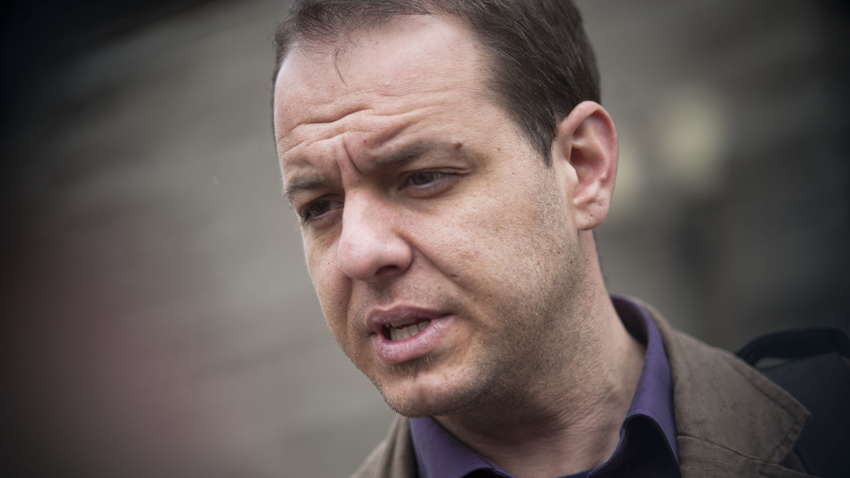A few days ago the outgoing Bulgarian government signed an agreement with the US Westinghouse on the construction of a new nuclear reactor at the Kozloduy Nuclear Power Plant. The “green” community in Bulgaria is firmly against it. In an interview for Radio Bulgaria Borislav Sandov, co-chair of the Greens party adduces their arguments:
 “Bulgaria does not need any additional nuclear capacities, especially when they mean enormous investments. Officially, the cost is said to be around USD 5 billion. This means more than EUR 5,000 per kilowatt of installed capacity. This is a price that is many times higher than one kilowatt derived from any other power source,” Mr. Sandov says.
“Bulgaria does not need any additional nuclear capacities, especially when they mean enormous investments. Officially, the cost is said to be around USD 5 billion. This means more than EUR 5,000 per kilowatt of installed capacity. This is a price that is many times higher than one kilowatt derived from any other power source,” Mr. Sandov says.
With a centralized power generation system in Bulgaria with one big nuclear power plant supplying the entire country, energy losses along the way are enormous. With the Koszloduy NPP they go as high as 30 percent. “We are keeping the crows on the wires warm”, says Borislav. Bulgaria’s heavy external dependency in power generation, if the country continues to develop nuclear power is, the Greens say, one more deterrent. Because both the power plants and the fuel – uranium – are imported. Another issue that remains unresolved is the storage of spent fuel, time bombs ticking underground that we are leaving to our children and grandchildren.
The “green” community in Bulgaria has, for a long time, been sounding the alarm on a different, but related problem – the enormous waste of energy. If we learn to be a bit more frugal, there will be no need of new or even of some of the old energy capacities, experts say.
“Bulgaria is the most inefficient country in Europe, energy-wise,” says Borislav Sandov. “We are ahead even of a giant like Russia, a country rich in primary energy sources. In point of fact, 90 percent of Bulgaria’s energy resources come from Russia. If we want the country’s economy to be competitive, we need to improve our energy efficiency a great deal. Because with the current enormous energy expenditure if we want to be competitive the only thing we can rely on are low wages. That is the reason why we have the lowest salaries.”
If we still need new capacities, the best option would be renewable energy, the “greens” say. And it is a myth from the past that this is the costliest kind of energy.
“The price of renewable energy is now lower than that of some coal power stations,” Borislav says. “The price of the technologies, which in fact form the cost of this energy as the source itself is free, has gone down several fold in just a few years. Back in 2010, it came down to the price of nuclear energy. Now, 4-5 years on, we see that the price of the installed renewable energy capacities is 4-5 times lower than in nuclear power generation. So, it is not surprising that investments in renewable energy sources have skyrocketed on a global scale. This is obviously the road Bulgaria should take too.”
Renewable energy sources have some other important advantages. The free sources of energy are all around; this kind of energy is also decentralized. Small RES capacities can be built close to any consumer – industrial or household. This means we can produce energy where we consume it which will, in turn drastically reduce energy transport costs and eliminate energy waste along the way. On the other hand, this will provide much greater energy independence. The simplest and most popular method are roof-top solar panels.
“The return on investments takes 6-8 years via the lower prices of electric energy,” says Borislav Sandov. “Moreover, in the near future we shall be able to use the energy produced during the day on a 24-hour basis – through a more efficient household battery or by charging our electric car, in itself one big electric battery.”
English version: Milena Daynova
Scotland is known as "The Land of the Brave" and recognized as the "Homeland of the Bagpipe". An instrument that carries the soul of Bulgarian folklore in its sound. According to unofficial data, the "brave" Bulgarians who are building a life in this..
Bulgaria participates in the Global Money Week initiative for yet another year. Global Money Week is an annual global awareness-raising campaign to ensure that young people, from an early age, are financially aware, and are gradually acquiring the..
Bulgaria, as distant as a mirage, has become a beloved land for a man who has never set foot in this country. For nearly 50 years, Mr Jayanta Chakrabarti has been closely following everything that happens here and probably knows more about our history and..
For 100 years, foresters in Bulgaria have been organizing Forest Week. A concert entitled “A century of eternity” on 7 April will give the official..
President Rumen Radev will today attend the opening ceremony of Forest Week in front of St Alexander Nevsky Cathedral. The theme of this year's..
Every Bulgarian school abroad has its own story, and that of the Rodna Stryaha Bulgarian school in Cyprus began in 2015. Its foundations are built on..

+359 2 9336 661
